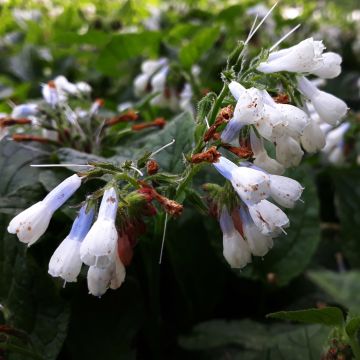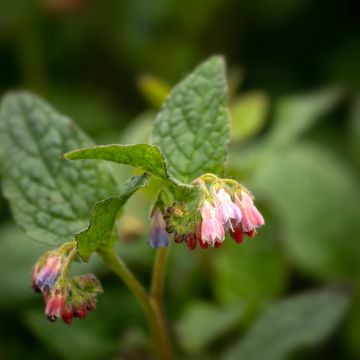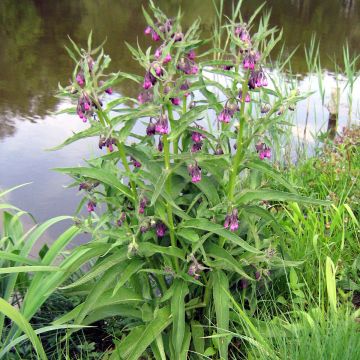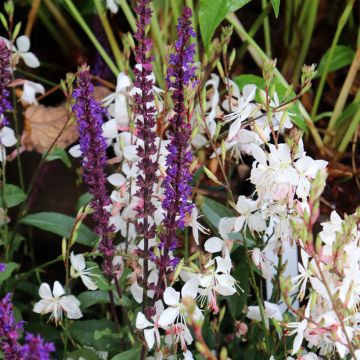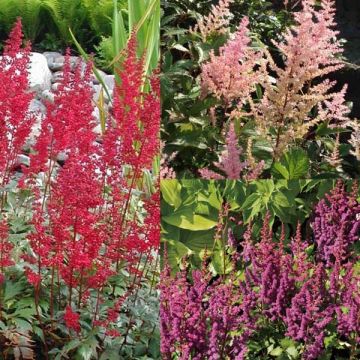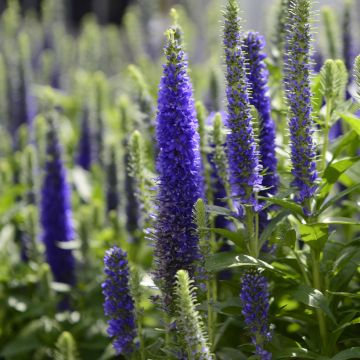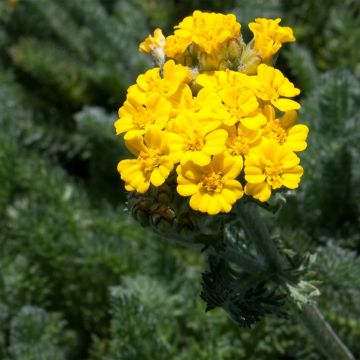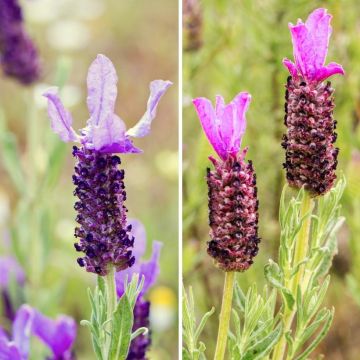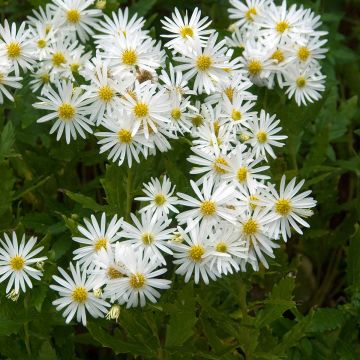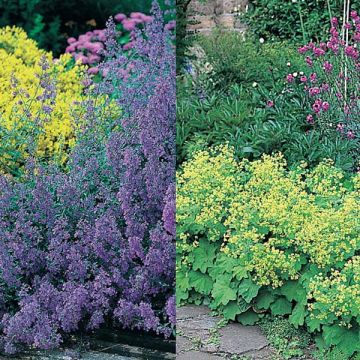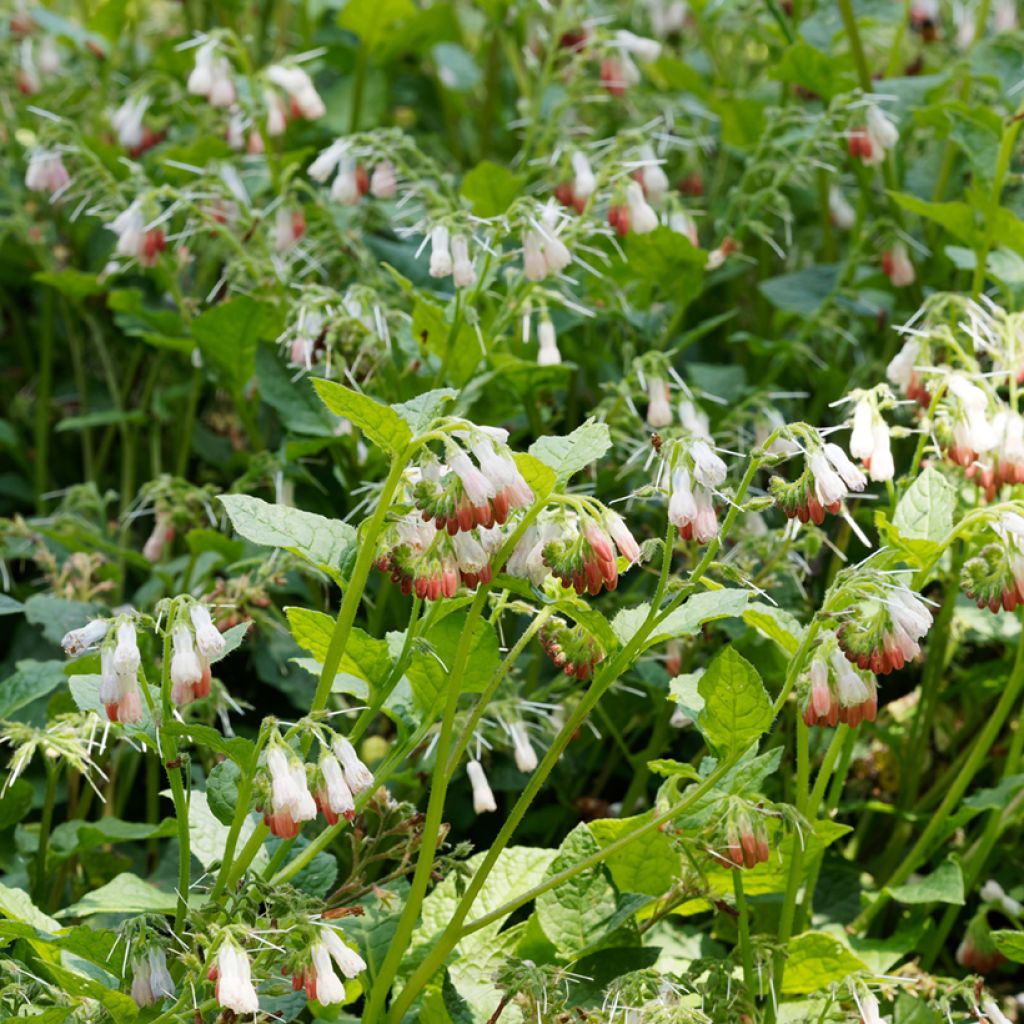

Symphytum grandiflorum - Comfrey
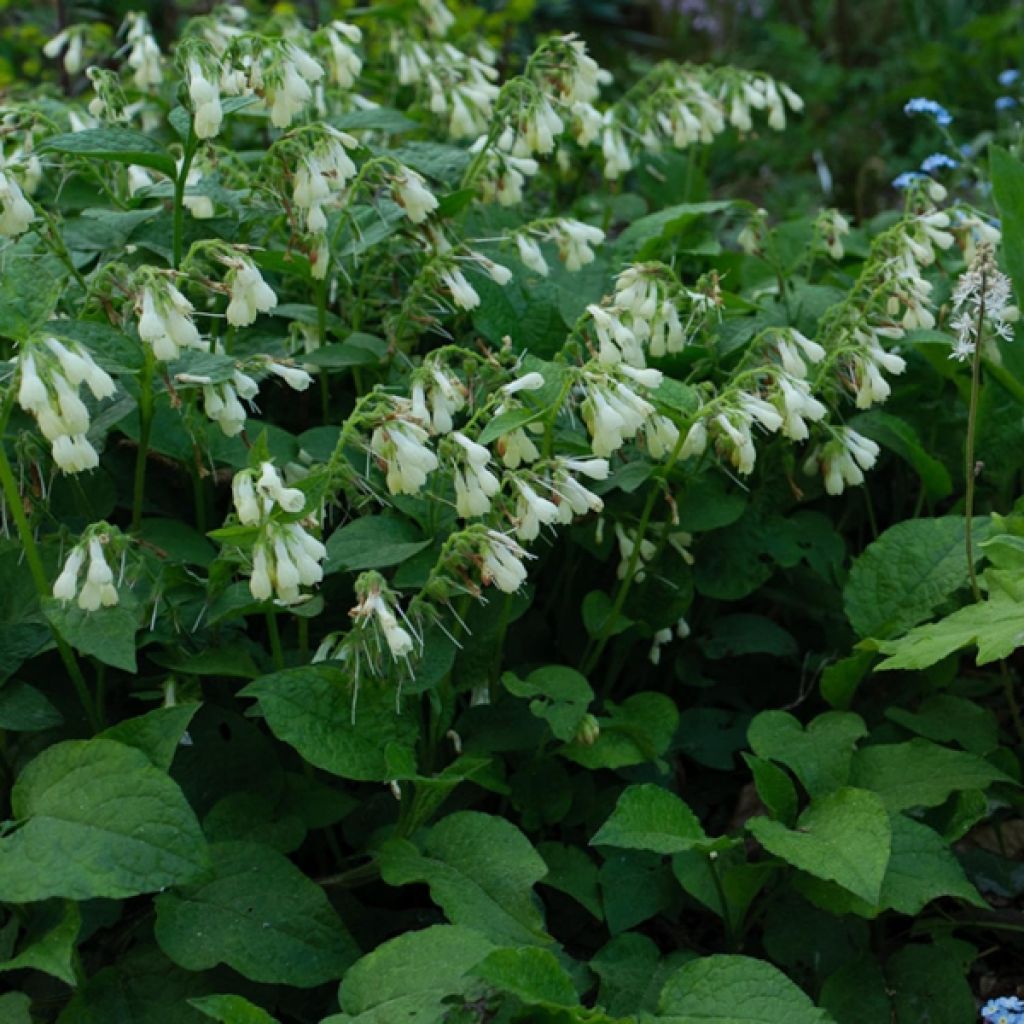

Symphytum grandiflorum - Comfrey
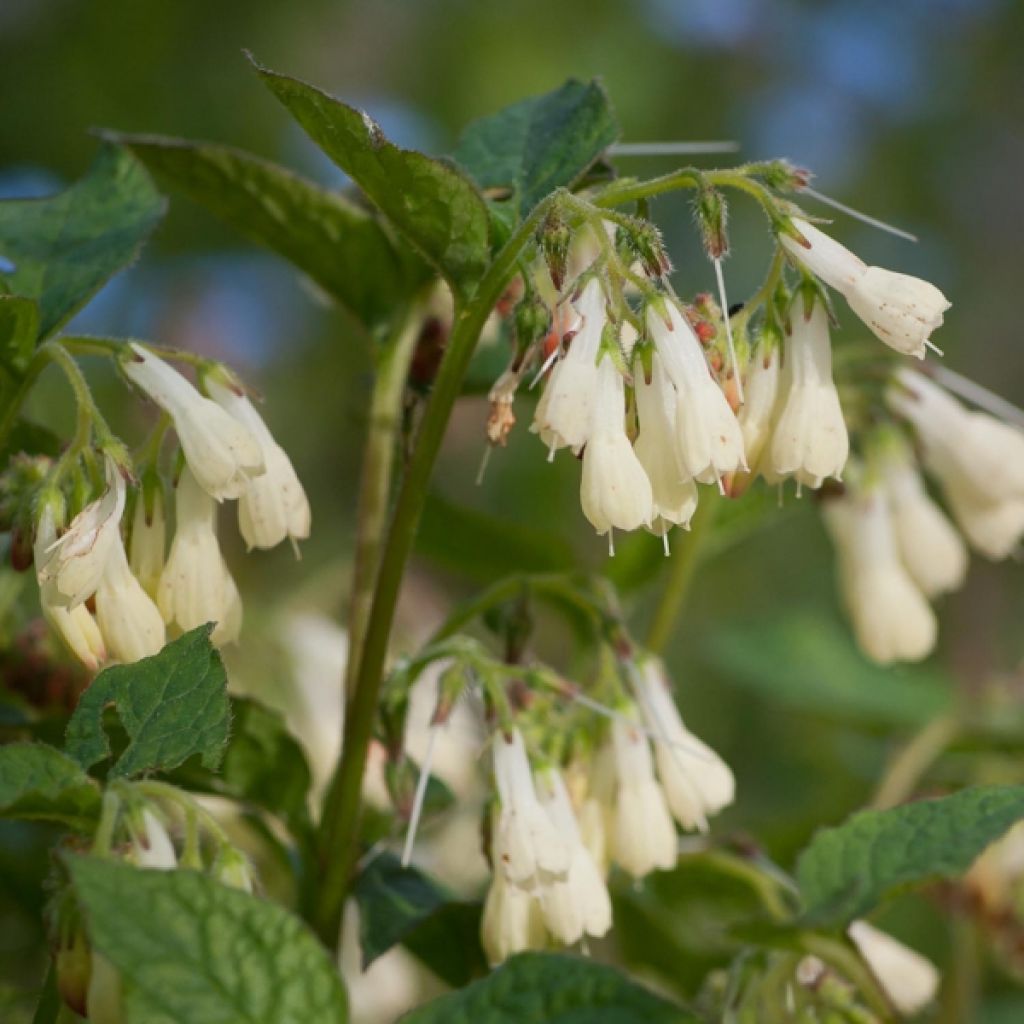

Symphytum grandiflorum - Comfrey
Symphytum grandiflorum - Comfrey
Symphytum grandiflorum
Creeping Comfrey
I bought 6 young plants in the spring. All of them took well and the plants developed nicely in light shade. A hardy plant with very good growth.
Matthias, 28/08/2025
Special offer!
Receive a €20 voucher for any order over €90 (excluding delivery costs, credit notes, and plastic-free options)!
1- Add your favorite plants to your cart.
2- Once you have reached €90, confirm your order (you can even choose the delivery date!).
3- As soon as your order is shipped, you will receive an email containing your voucher code, valid for 3 months (90 days).
Your voucher is unique and can only be used once, for any order with a minimum value of €20, excluding delivery costs.
Can be combined with other current offers, non-divisible and non-refundable.
Home or relay delivery (depending on size and destination)
Schedule delivery date,
and select date in basket
This plant carries a 12 months recovery warranty
More information
We guarantee the quality of our plants for a full growing cycle, and will replace at our expense any plant that fails to recover under normal climatic and planting conditions.
Would this plant suit my garden?
Set up your Plantfit profile →
Description
Symphytum grandiflorum, better known as trailing comfrey, is a particularly robust perennial plant that grows vigorously as a thick ground cover in any good garden soil, significantly reducing the appearance of weeds. It is an easy-to-grow flowering plant that adds charm to the garden in spring, and is useful to the gardener well as the garden. Its cream-white bell-shaped flowers bring life to shady and sunny borders and provide food for bees. Its vegetation has multiple uses in an organic or permaculture garden. Its spread can be easily controlled by removing unwanted suckers.
Trailing comfrey belongs to the Boraginaceae family and is related to borage and forget-me-nots. It originates from Russia and Georgia but is widely spread and cultivated in Western Europe. Although it can tolerate competition from other plant roots and a wide range of soils (from slightly acidic to limestone), this comfrey prefers rich and moist soils. It is a fast-growing perennial herbaceous, evergreen plant that spreads laterally through its suckering roots. From the roots, tightly packed stems with dark green, rough-textured, ovate and pointed leaves with purple veins emerge. Flowering occurs in April-May, at the tips of purple stems that can reach a height of 25-30 cm (10-12in). Symphytum grandiflorum has tubular, nectar-rich, cream-white flowers marked with brown and orange, carried in pendulous clusters.
Vigorous, trailing comfrey can form large colonies in woodlands or even in sunny areas, between bushes, on slopes... basically anywhere where you want the soil to be occupied without having to maintain it. It can even withstand summer drought if not too severe. When you've tried everything and nothing has worked, trailing comfrey is your answer. Use it to border a shaded pathway, the base of trees and shrubs, or the neglected corner of the garden threatened by ivy and brambles... It can be paired with Trachystemon orientalis, European wild ginger, or lesser periwinkle Vinca minor...
Uses of trailing comfrey:
It is a nectar-producing plant that also improves soil structure. It can be steeped in cold water to make liquid fertiliser, a spring tonic. The decoction (boiling the leaves for a few minutes and then allowing it to cool) is used as an insecticide. The prunings of trailing comfrey can be used as mulch around other plants and incorporated into compost, enriching it with nitrogen, potassium, phosphorus, calcium, copper, iron, and magnesium. It can tolerate occasional trampling and makes an excellent ground cover to suppress weeds. It is also a great plant for biodiversity, loved by bees, lacewings, and spiders.
Report an error about the product description
Symphytum grandiflorum - Comfrey in pictures


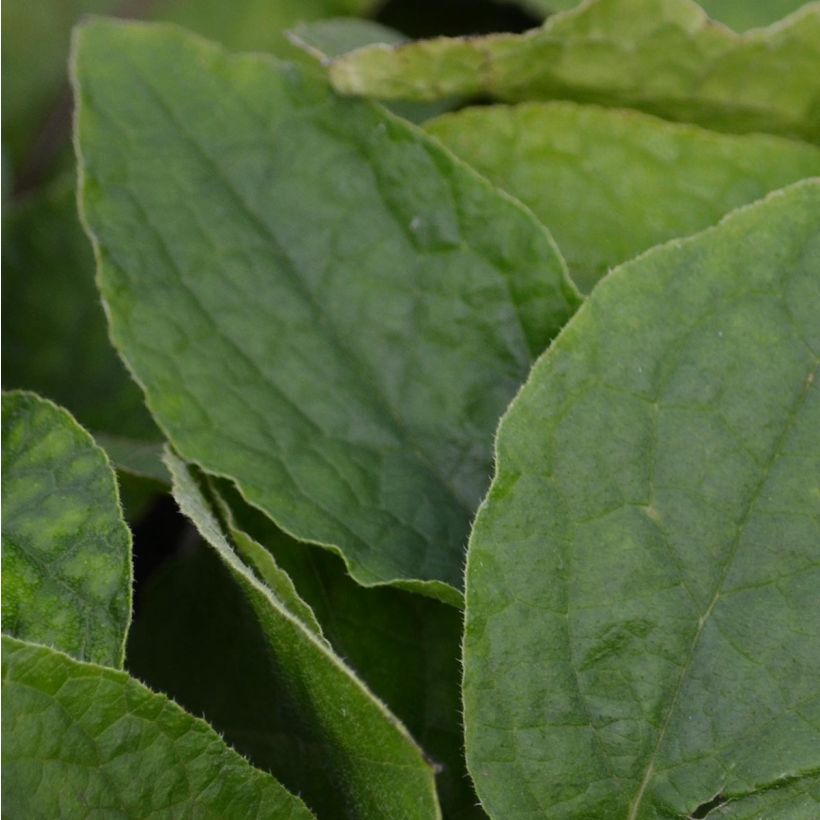

Flowering
Foliage
Plant habit
Botanical data
Symphytum
grandiflorum
Boraginaceae
Creeping Comfrey
Cultivar or hybrid
Other Symphytum - Comfrey
View all →Planting and care
Symphytum grandiflorum prefers moist and rich soil, with a humus-bearing tendency. However, it is a very accommodating plant that will also grow in less welcoming soils, including limestone or clay, with a certain depth. Place it in full sun or partial shade, or even in the shade of large trees in hot regions. Protect from excessive sun and avoid dry conditions. Symphytum does not have any specific requirements. To limit its spread, remove the pendulous shoots rooted superficially at the periphery of the clumps or cut them off with a shovel.
Planting period
Intended location
Care
-
, onOrder confirmed
Reply from on Promesse de fleurs
Similar products
Haven't found what you were looking for?
Hardiness is the lowest winter temperature a plant can endure without suffering serious damage or even dying. However, hardiness is affected by location (a sheltered area, such as a patio), protection (winter cover) and soil type (hardiness is improved by well-drained soil).

Photo Sharing Terms & Conditions
In order to encourage gardeners to interact and share their experiences, Promesse de fleurs offers various media enabling content to be uploaded onto its Site - in particular via the ‘Photo sharing’ module.
The User agrees to refrain from:
- Posting any content that is illegal, prejudicial, insulting, racist, inciteful to hatred, revisionist, contrary to public decency, that infringes on privacy or on the privacy rights of third parties, in particular the publicity rights of persons and goods, intellectual property rights, or the right to privacy.
- Submitting content on behalf of a third party;
- Impersonate the identity of a third party and/or publish any personal information about a third party;
In general, the User undertakes to refrain from any unethical behaviour.
All Content (in particular text, comments, files, images, photos, videos, creative works, etc.), which may be subject to property or intellectual property rights, image or other private rights, shall remain the property of the User, subject to the limited rights granted by the terms of the licence granted by Promesse de fleurs as stated below. Users are at liberty to publish or not to publish such Content on the Site, notably via the ‘Photo Sharing’ facility, and accept that this Content shall be made public and freely accessible, notably on the Internet.
Users further acknowledge, undertake to have ,and guarantee that they hold all necessary rights and permissions to publish such material on the Site, in particular with regard to the legislation in force pertaining to any privacy, property, intellectual property, image, or contractual rights, or rights of any other nature. By publishing such Content on the Site, Users acknowledge accepting full liability as publishers of the Content within the meaning of the law, and grant Promesse de fleurs, free of charge, an inclusive, worldwide licence for the said Content for the entire duration of its publication, including all reproduction, representation, up/downloading, displaying, performing, transmission, and storage rights.
Users also grant permission for their name to be linked to the Content and accept that this link may not always be made available.
By engaging in posting material, Users consent to their Content becoming automatically accessible on the Internet, in particular on other sites and/or blogs and/or web pages of the Promesse de fleurs site, including in particular social pages and the Promesse de fleurs catalogue.
Users may secure the removal of entrusted content free of charge by issuing a simple request via our contact form.
The flowering period indicated on our website applies to countries and regions located in USDA zone 8 (France, the United Kingdom, Ireland, the Netherlands, etc.)
It will vary according to where you live:
- In zones 9 to 10 (Italy, Spain, Greece, etc.), flowering will occur about 2 to 4 weeks earlier.
- In zones 6 to 7 (Germany, Poland, Slovenia, and lower mountainous regions), flowering will be delayed by 2 to 3 weeks.
- In zone 5 (Central Europe, Scandinavia), blooming will be delayed by 3 to 5 weeks.
In temperate climates, pruning of spring-flowering shrubs (forsythia, spireas, etc.) should be done just after flowering.
Pruning of summer-flowering shrubs (Indian Lilac, Perovskia, etc.) can be done in winter or spring.
In cold regions as well as with frost-sensitive plants, avoid pruning too early when severe frosts may still occur.
The planting period indicated on our website applies to countries and regions located in USDA zone 8 (France, United Kingdom, Ireland, Netherlands).
It will vary according to where you live:
- In Mediterranean zones (Marseille, Madrid, Milan, etc.), autumn and winter are the best planting periods.
- In continental zones (Strasbourg, Munich, Vienna, etc.), delay planting by 2 to 3 weeks in spring and bring it forward by 2 to 4 weeks in autumn.
- In mountainous regions (the Alps, Pyrenees, Carpathians, etc.), it is best to plant in late spring (May-June) or late summer (August-September).
The harvesting period indicated on our website applies to countries and regions in USDA zone 8 (France, England, Ireland, the Netherlands).
In colder areas (Scandinavia, Poland, Austria...) fruit and vegetable harvests are likely to be delayed by 3-4 weeks.
In warmer areas (Italy, Spain, Greece, etc.), harvesting will probably take place earlier, depending on weather conditions.
The sowing periods indicated on our website apply to countries and regions within USDA Zone 8 (France, UK, Ireland, Netherlands).
In colder areas (Scandinavia, Poland, Austria...), delay any outdoor sowing by 3-4 weeks, or sow under glass.
In warmer climes (Italy, Spain, Greece, etc.), bring outdoor sowing forward by a few weeks.






























